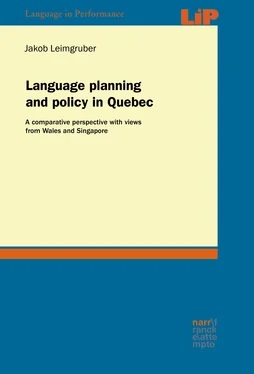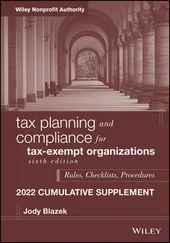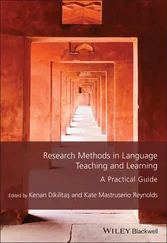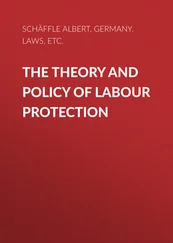With the insatiable hunger for land among the ever-increasing number of colonists, First Nations were gradually robbed of their hunting grounds and assigned to specific areas – the so-called reserves. The focus, however, was on assimilation, and the residential school system was one way to that end. In this system, passed under the Indian Act in 1884, education of ‘Indian’ children was mandated, often against their will. Boarding schools were constructed, children separated from their parents, and English made the only language allowed on school grounds. Mortality rates were high, physical, psychological, and sexual abuse was rampant, and the collective emotional trauma is still intact. The last residential school closed in 1996, and the government apologised in 2008.
The Indian Act 1876 has been amended several times since its introduction (notably with respect to residential schools). The act provides a framework for state-aboriginal relations, defining legal bases for reserves (ss 18–19), Indian bands (s 2), and actual Indian status (ss 5–17). This last point is important because only ‘status Indians’ (‘registered Indians’) are subject to the Indian Act and may claim the benefits set out in the act (such as the right to reserves, hunting rights, easier access to firearms, exemption from certain taxes, etc.). This excludes Métis and Inuits, as well as several non-registered ‘Non-Status Indians’. Registered Indians are issued identity cards with which they are allowed to cross the border with the USA. Current developments may, however, lead to a breakdown of the distinction between ‘status’ and ‘non-status’ Indians: a Supreme Court decision in April 2016 ruled that ‘non-status Indians’ and Métis are to be considered ‘Indians’ under section 91(24) of the Constitution Act, 1867 (Fontaine, 2016). The change is yet to be fully implemented, but will see a large number (around 600000) of previously non-registered aboriginal people granted access to federal funding and benefits.
There is very little recognition of Aboriginal languages at the official level. At the federal level, there are only two official languages, and the Official Languages Act does not deal with Aboriginal languages – in fact, it excludes band governments and councils from its provisions (which, to put it more positively, gives bands jurisdiction over internal language matters). None of the ten provinces has an official Aboriginal language. Things look brighter in the territories, where Yukon, in its Language Act, recognises as ‘significant’ eight Aboriginal languages. The Northwest Territories makes a distinction between the ‘official languages’ English and French, and nine ‘official aboriginal languages’. Nunavut arguably has the language policy with the most inclusive treatment of Aboriginal languages: all of Inuktitut, Inuinnaqtun, French, and English are equally official.
The number of speakers involved is likely a factor explaining the virtual absence of Aboriginal languages from the official political scene beyond territorial or local government. The decline in speakers means that language policies in education are geared towards revitalisation or at best, in the case of Nunavut, maintenance.2 The English language, in particular, holds a powerful status within communities, in provinces and territories, at the federal level, and, of course, at the continental and global levels. Few aboriginals, regardless of their strong affection for their ancestral languages, would like to deprive themselves of the advantages that English affords. Education policies tend to take this into account, and shy away from sidelining English in their curricula.
2.3 Quebec: an officially monolingual province
There is a long history of legal specificity for the province of Quebec. The link between language and citizenship, state institutions, and national identity is important and multi-facetted. The special status of Quebec can be traced back to the Quebec Act 1774, in which French civil law was allowed for francophone ‘Canadiens’ within the province. Later, the British North America Act 1867 permitted both French and English in the Quebec legislature and judiciary. With patriation in the early 1980s, and the intricate constitutional complex that came with it, a federal-level solution to language rights was sought with the Canadian Charter of Rights and Freedoms (which is Part I of the Constitution Act, 1982). This part of the constitution was always rejected by Quebec, partly because it was seen to give the federal government too much power, partly because of a sense of betrayal for having been left out of critical phases in the negotiation process. Minority education rights were also an issue, as they were seen to be too favourable to English in Quebec.1 Two subsequent conferences (the Meech Lake Accord in 1987 and the Charlottetown Accord in 1992), aimed at integrating the province into the larger Canadian constitutional order, were equally unsuccessful. Opposition to the Charter within Quebec – while still being subject to it, as federal law trumps provincial law – is evidenced by the government’s routine invoking of the Charter’s section 33, the so-called ‘notwithstanding clause’, which allows legislatures to pass acts that contravene provisions of the Charter. This section is rarely invoked by other provinces, and while it was included in every Quebec act between 1982 and 1987, this practice has now stopped and is only used occasionally.
The special status of Quebec is further evident in its partial rejection of the Canadian Multiculturalism Act 1988. The mandate to ‘promote and enhance’ (s 3(1)(i)) non-official languages has, at least, the potential to be in conflict with the province’s concern for protecting the French language and investing it with the status of ‘common language’. The Quebec policy differs, as mentioned above, from the rest of Canada’s embrace of multiculturalism by the use of the term interculturalism , where the focus is on ‘acceptance of, and communication and interaction between, culturally diverse groups’, all the while maintaining ‘the unquestioned supremacy of French in the language and culture of Quebec’ (Dewing, 2009, 15). One defining point of this interculturalism policy is that it is ‘distinct from both the US multicultural melting pot and the Canadian multicultural mosaic, the latter treating the various components that make up Canadian society as merely juxtaposed and largely isolated entities’ (Oakes and Warren, 2007, 29). Interculturalism, on the other hand, allows for different cultural groups to interpenetrate, mutually benefit each other, and contribute equally to nation building, all ‘within a common civic culture and a French-speaking framework’ (Anctil 1996, 143, cited in Oakes and Warren 2007, 29).
The root causes for language legislation in the province of Quebec are to be found within the so-called ‘Quiet revolution’ of the 1960s. This ‘revolution’ itself is a reaction to societal changes that began in the late 1950s: an increasing number of Francophones left the countryside and, in the course of urbanisation, came increasingly into contact with the English language (d’Anglejan, 1984, 29). English, at that time, was very much the language of the business élite in cities such as Montreal. Poorly educated and newly urbanised Francophones were inadequately prepared for this socio-economic situation, in which knowledge of English was the key to upward social mobility. As a result, many Francophones found themselves in the lower tier of the socio-economic pecking order. This apparent discrepancy in the economic situation of two groups differing in language and ethnicity, with the minority being economically advantaged, was one of the leading factors of change in the 1960s.
Читать дальше












